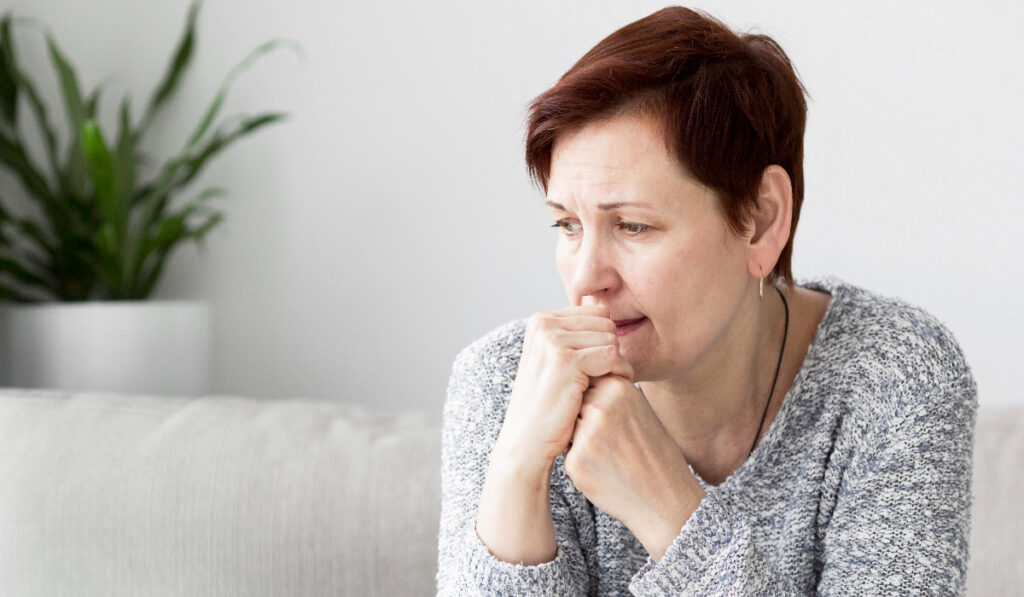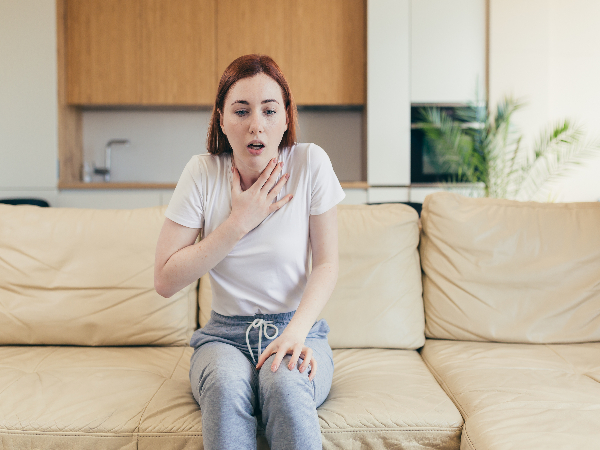Anxiety, we all experience it from time to time. There is nothing wrong with a little worry or anxiety. It is helpful at times to worry about issues like doing a good job at work or school. We may have some anxiety over finances or our security. Anxiety is a way in which our bodies cope with stressful situations. This helps keep us on our toes so that we can work hard to meet set goals and objectives. Instead of sleeping and daydreaming all day. It also helps to keep us safe. Anxiety and fear help us avoid dangerous places and scenarios that could bring us harm.
Ordinary “normal” anxiety is typically on and off and does not affect your ability to carry out your daily activities. However, there are times when worry becomes excessive, frequent, and intense. At such times, it comes with prolonged fear over nothing in particular or some situation not worthy of the inordinate fear and anxiety generated.
When this happens, there is a need to see a doctor for proper evaluation and assessment. The idea is to look for any possible underlying medical causes of such exaggerated anxiety and fear. There are medical conditions such as thyroid disease, respiratory diseases, diabetes mellitus, hypertension, drug abuse, and alcohol withdrawal that can cause you to feel increased anxiety.
If left untreated anxiety can become overwhelming and lead to panic attacks. These attacks occur when prolonged anxiety leads to sudden excessive fear (peak of anxiety) over certain situations. It could trigger a feeling of impending doom which can be crippling and impact normal life activities.
Chronic anxiety can affect sleep, digestive health, and your heart. The good news, however, is that no matter how severe anxiety and panic attacks present. There are a good number of pharmaceutical and natural ways of decreasing these episodes.
WHAT IS ANXIETY DISORDER?
A form of mental health disorder that is defined by overwhelming and excessive anxiety, worry, and fear of impending doom. These symptoms can be crippling enough to impede normal daily routines and work.
IS ANXIETY THE SAME AS A PANIC ATTACK?
Although the two entities share similar features like the experience of fear, restlessness, apprehension, worry, etc., they are quite different.
Whereas anxiety is experienced mostly in the mind, panic attacks go beyond these feelings. In panic attacks, there are accompanying physical characteristics like an increase in heartbeat, sweating, shortness of breath, and nausea.
Also, a panic attack is the peak of anxiety and is often sudden and greatly intense, unlike anxiety which comes gradually and is generally less intense.

WHAT ARE THE SYMPTOMS OF ANXIETY?
Nervousness and restlessness: the individual finds it difficult to remain calm in normal routine situations which should not ordinarily create feelings of nervousness.
Feeling of impending doom. An overwhelming feeling of danger you may not even know what is causing the feeling.
Difficulty with concentration and focus: When you suffer from anxiety you find it very difficult to give your complete attention to tasks and things you need to. You become distracted by the fear and worry created by the anxiety.
Sleep disorders: in most cases of anxiety, the sleep pattern is altered and insomnia is often a common occurrence.
Excessive feeling of tiredness: even when very little to no work has been done, individual suffering from anxiety often feels tired and weak and lacking motivation. 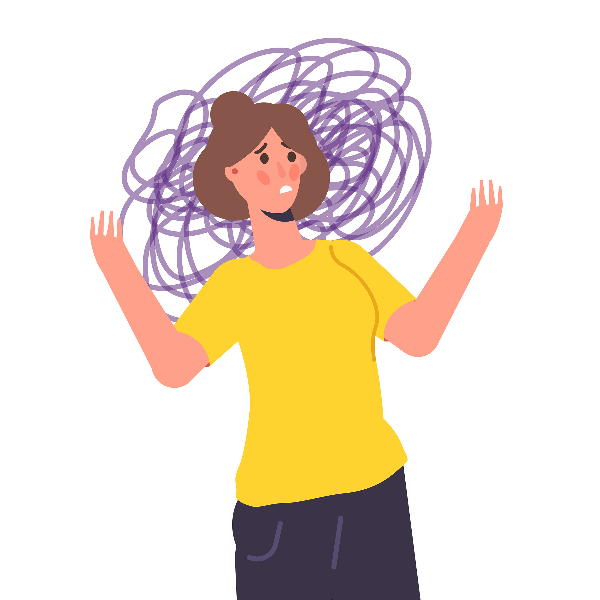
WHAT ARE THE DIFFERENT TYPES OF ANXIETY DISORDERS?
The following are the more common types or variants of anxiety disorders:
Secondary anxiety: this includes all symptoms of anxiety or panic that arise from some hidden medical conditions as earlier mentioned. Often, when the underlying medical condition is treated, the anxiety resolves on its own.
Generalized anxiety: this is frequently seen together with other forms of anxiety and depression. There is intense and overwhelming worry over normal circumstances and the individual often fails to be in control of themselves. The individual finds themselves continuously mulling over future events regarding how they may play out as well as how they would react to them.
Selective mutism: in this form of anxiety, the affected children find it difficult to speak in certain environments but once they depart such places, they don’t have any difficulty speaking freely.
Panic disorder: this is characterized by a sudden feeling of impending doom, a faster heartbeat, chest pain, and sweating. These symptoms are often sudden and repeated over time. The affected individuals often worry whenever they are in certain situations or scenes that they associate with the panic attack.

What is Agoraphobia?
This is a type of anxiety that is associated with certain places and conditions usually as a response to panic attacks. The individual often feels helpless and trapped and does everything possible to avoid or escape the scene or the situation including avoiding leaving home.
ARE THERE MEDICATIONS THAT CAN TREAT ANXIETY?
Anxiety disorders often aren’t completely curable. However, the symptoms can be effectively managed. In addition to psychotherapy, medications greatly help to treat anxiety disorders. Some of the medications that may be used to treat anxiety are:
Benzodiazepines: this is a broad family of drugs that help to create a calming effect on the mind, muscles, and the general body. The drugs in this family work by influencing certain chemicals called neurotransmitters which control the relay of chemical messages in the brain. Examples include alprazolam, chlordiazepoxide (Librium), diazepam (valium), etc.

Buspirone: its method of action is not very well known however, it helps to balance certain chemicals in the brain and is very effective in treating both short-term and long-term anxiety disorders.
Antidepressants: this class of drugs works by affecting the chemical messengers in the brain positively. They exert a calming and mood- lifting effect on the anxiety sufferer.
Beta-blockers: These drugs are more commonly used to treat heart conditions. However, they can also produce relief from symptoms of panic attacks such as a fast heartbeat (tachycardia). Examples of these medications include atenolol, propranolol, and metoprolol.
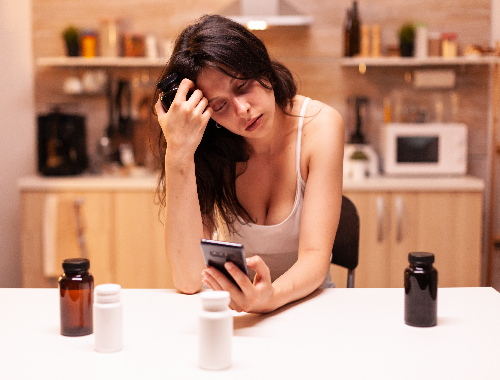
Natural Remedies for Anxiety?
In addition to medication and talk therapy for anxiety. There are natural and alternative things you can try which many people find helpful, such as:
-
Aromatherapy: this involves the use of essential oils like bergamot, lavender, clary sage, grapefruit, etc. These fragrances have been known to help sufferers of anxiety to relax, sleep better, uplift their mood, and help reduce their heart rates and blood pressure.
-
Meditation: helps with anxiety by removing thoughts that are chaotic from your mind. It gives you a sense of calm and greater control of your feelings.
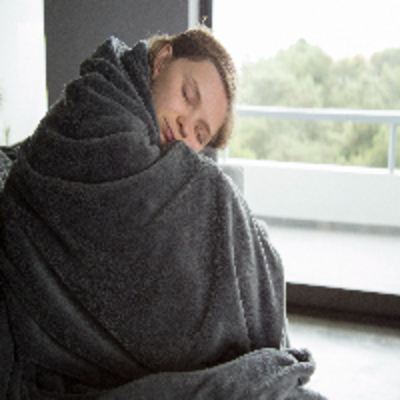
-
Weighted blankets: These blankets come in different shapes, colors, and sizes. They work by making the users feel comforted by a huge hug in the form of the weight of the blanket. This weight is believed to help the independent nerves in the body to enter resting mode. This reduces some of the most common symptoms of anxiety-like fast heart rates, fast breathing, restlessness, and agitation. Just imagine yourself being given a huge cuddle and a sense of protection by these blankets. It sure would feel good.
-
Ashwagandha: the roots and orange fruits of this shrub grown in India, Africa and parts of the Middle East have been used for the treatment of certain illnesses including anxiety. The substances in this plant have been known to have a calming effect on anxiety symptoms. Some even believe that it is better than pharmaceutical agents like lorazepam.
-
Use a worry stone: these stones are often shiny; smooth stones. They are usually oval and rubbing them often creates relaxation in people who suffer from anxiety. They are very handy when preparing for huge interviews or facing situations that you know make you anxious.

-
CBD and the other products of the plant Cannabis Sativa have been noted to help in relaxing people who suffer from anxiety and panic attacks. It is believed they work by influencing a brain chemical called serotonin. Which helps to calm and uplift the mood more information here.
Ways To Lessen Anxiety and its Symptoms
Frequent exercise: this helps to improve blood flow and relaxes the nerves.
Avoid alcohol: alcohol can only create a mild temporary relief from anxiety. Not to mention that when the alcohol effect wears off, the anxiety often comes back with greater intensity. Excessive alcohol use often adds to stress and anxiety. Therefore, it is better to choose a healthy lifestyle to abstain or limit your alcohol use.
Avoid tobacco and other stimulating drugs such as caffeine and cocaine. Rather than helping, anxiety symptoms. These substances can precipitate or worsen anxiety.
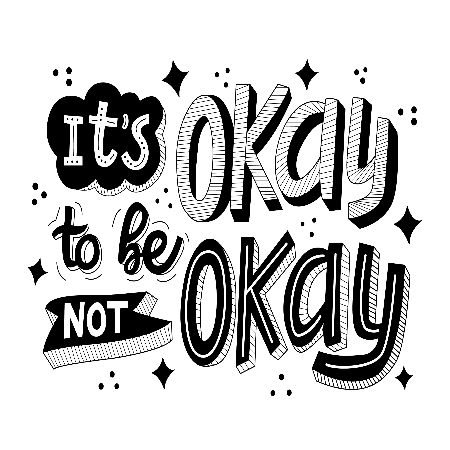
When To Seek Treatment For Your Anxiety?
Excessive anxiety is a condition that if left untreated, can result in other conditions; panic attacks, depression, and abuse of substances. Let your doctor know if you are experiencing any of the following:
-
You are too worried to function properly and focus on your normal daily routines.
-
You are finding it difficult to control your fears and anxieties no matter what you do.
-
You are beginning to rely on alcohol and other substances to calm yourself and to feel happy.
-
You are increasingly becoming unhappy and feeling a heavy and overwhelming sense of doom.
-
You have a chronic medical condition like thyroid disease, diabetes, or hypertension which creates intense and uncontrollable anxiety in you. That gets in the way of your work and relationships.
Don’t let anxiety take control of your life and keep you from enjoying it!! Have an honest talk with your doctor about the symptoms you are experiencing and treatment options. Take back control by practicing natural ways to decrease your anxiety. Take control of your anxiety today! So, you can enjoy a more balanced and joyful life!!


